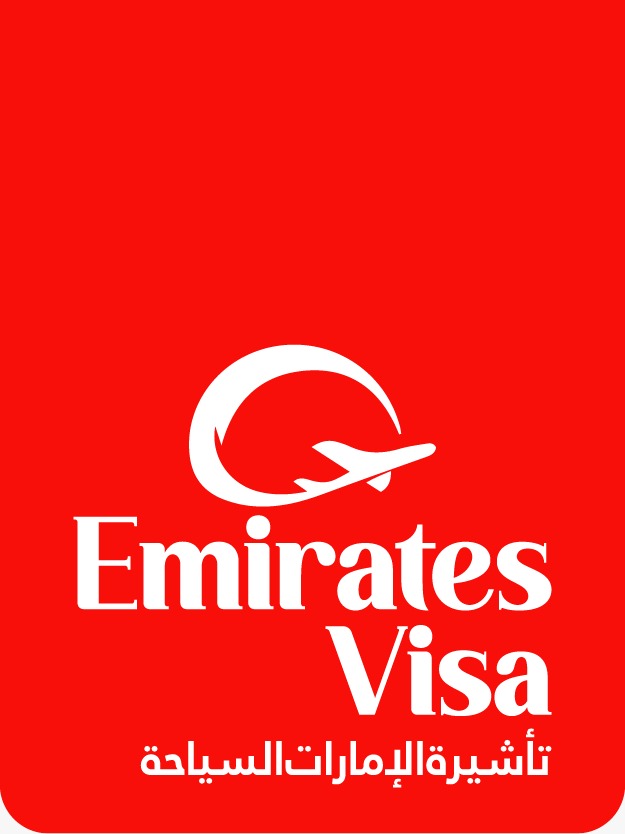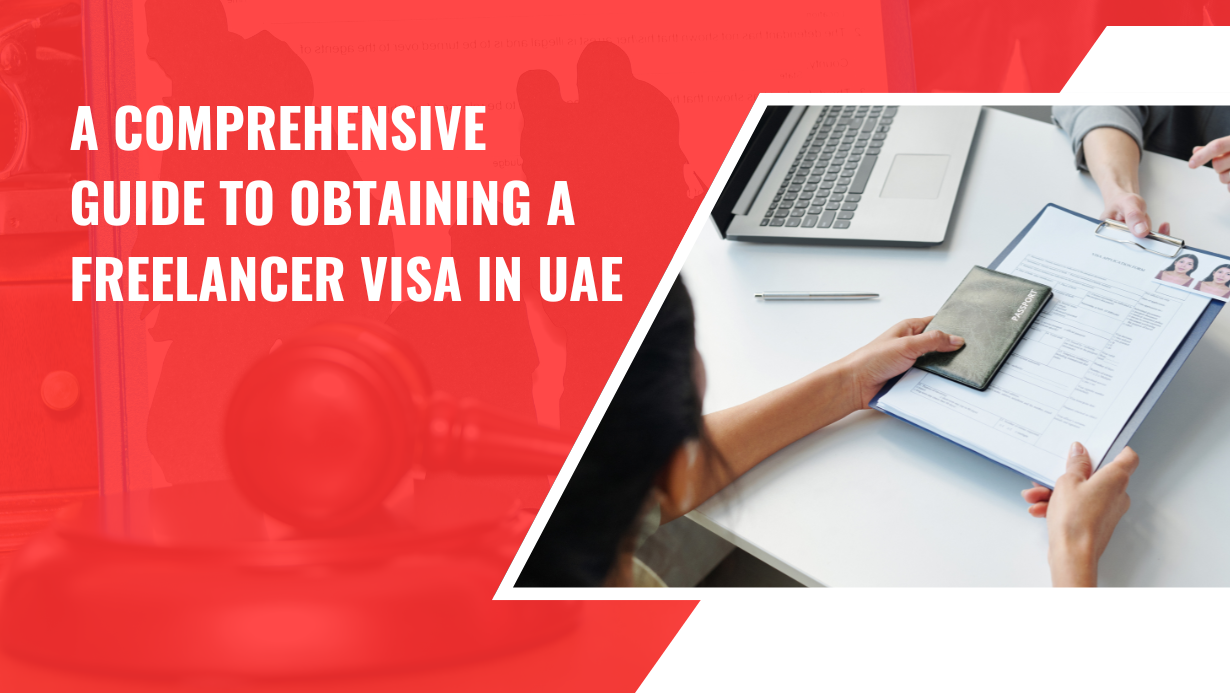The United Arab Emirates (UAE) has emerged as a global hub for entrepreneurship, innovation, and business opportunities, attracting talented professionals from around the world. Among the various visa options available, the Freelancer Visa has gained significant popularity, offering individuals the freedom to pursue their passions and work independently while enjoying the benefits of living in this dynamic nation. In this comprehensive guide, we’ll explore the intricacies of obtaining a Freelancer Visa in the UAE, covering eligibility criteria, application processes, and the advantages it offers.
Table of Contents
Defining the Freelancer Visa
The Freelancer Visa, also known as the Freelance Permit or License, is a type of residency visa that allows individuals to legally work as self-employed professionals in the UAE. Unlike traditional employment visas, the Freelancer Visa does not require a company sponsor or an office space, providing freelancers with the flexibility to work remotely or from co-working spaces while catering to multiple clients.
Eligibility Criteria for a Freelancer Visa
To be eligible for a Freelancer Visa in the UAE, applicants must meet specific criteria, which may vary slightly depending on the emirate or free zone in which they intend to operate. However, some general requirements include:
- Professional Qualifications: Applicants must possess relevant professional qualifications or expertise in their field of work, such as a bachelor’s degree, specialized diploma, or extensive industry experience.
- Portfolio or Work Samples: Providing a portfolio or samples of previous work can strengthen the application and demonstrate the applicant’s expertise and capabilities.
- Financial Stability: Depending on the visa category, applicants may need to provide proof of sufficient funds to support themselves during their stay in the UAE or evidence of a minimum annual income from self-employment.
- Health Insurance: Obtaining valid health insurance coverage is a mandatory requirement for obtaining a Freelancer Visa.
- Clean Criminal Record: Applicants must have a clean criminal record and undergo security clearance procedures as part of the visa application process.
It’s essential to note that specific requirements may vary based on the emirate, free zone, or the nature of the freelance activity, so it’s advisable to consult with the relevant authorities or seek professional guidance to ensure compliance with the latest regulations.
For instant Visa Apply Or Approval Please Tap here.
Choosing the Right Emirate and Free Zone
The UAE comprises seven emirates, each with its unique regulations and free zones catering to various industries. When applying for a Freelancer Visa, it’s crucial to choose the emirate and free zone that best aligns with your professional aspirations and the nature of your freelance work.
Popular Free Zones for Freelancers
- Dubai:
- Dubai Media City (DMC): Ideal for freelancers in media production, advertising, and journalism.
- Dubai Internet City (DIC): Tailored for IT professionals, software developers, and tech innovators.
- Dubai Knowledge Park (DKP): Focused on education, training, and human resources consulting.
- Dubai Design District (d3): Dedicated to the design and fashion industry.
- Abu Dhabi:
- twofour54: Caters to media professionals, content creators, and entertainment industry freelancers.
- Abu Dhabi Global Market (ADGM): Suitable for financial services, consulting, and legal professionals.
- Sharjah:
- Sharjah Media City: Designed for media and creative industries.
- Ras Al Khaimah:
- Ras Al Khaimah Economic Zone (RAKEZ): Offers cost-effective solutions for various industries, including trading, services, and manufacturing.
- Ajman:
- Ajman Free Zone: Provides affordable options for a wide range of freelance activities.
- Fujairah:
- Fujairah Creative City: Caters to creative professionals in media, events, consulting, and marketing.
Each free zone has its own set of advantages, specialized facilities, and industry focus, so it’s essential to research and select the one that best suits your freelance endeavors.
Application Process for a Freelancer Visa
While the specific application process may vary slightly across emirates and free zones, the general steps involved in obtaining a Freelancer Visa in the UAE are as follows:
- Determine Your Freelance Activity: Clearly define the type of freelance work you intend to undertake, such as writing, graphic design, consulting, or any other professional service.
- Choose a Free Zone: Based on your freelance activity, select a free zone that offers freelancer licenses and aligns with your industry or sector.
- Gather Required Documents: Prepare the necessary documents, which typically include a copy of your passport, educational certificates (attested by the UAE Consulate or the Ministry of Foreign Affairs), a detailed resume or CV, a portfolio or work samples, and proof of financial stability or income.
- Submit Your Application: Complete and submit the online application form on the chosen free zone’s website, uploading the required documents and paying the applicable fees.
- Receive Initial Approval: Upon reviewing your application, the free zone authority will grant initial approval, allowing you to proceed with the next steps.
- Secure Freelancer Permit or License: Once approved, you will receive your Freelancer Permit or License, which serves as your legal authorization to operate as a freelancer in the UAE.
- Apply for Residency Visa: With your Freelancer Permit in hand, you can apply for a residency visa, also known as a Freelancer Visa, through the free zone authority or the relevant government department.
- Undergo Medical Examination: As part of the visa application process, you will need to undergo a medical examination and obtain a medical fitness certificate.
- Visa Issuance and Stamping: Upon successful completion of all requirements, your Freelancer Visa will be issued, and your passport will be stamped with the appropriate visa entry.
- Open a Bank Account: With your Freelancer Visa and Emirates ID, you can open a corporate bank account to facilitate financial transactions and business operations.
It’s important to note that the process may involve additional steps or requirements depending on your specific circumstances, such as obtaining a No Objection Certificate (NOC) from a current employer or sponsor if you are already residing in the UAE.
Also read on Guide For Applying Dubai Tourist Visa
Advantages of Obtaining a Freelancer Visa in the UAE
Pursuing a freelance career in the UAE offers numerous advantages, making it an attractive destination for independent professionals. Some of the key benefits include:
- Flexible Work Environment: With a Freelancer Visa, you have the freedom to work remotely, from co-working spaces, or even from the comfort of your home, allowing you to create a work-life balance that suits your lifestyle.
- Access to a Diverse Client Base: The UAE is a global business hub, providing freelancers with access to a wide range of potential clients, both locally and internationally, across various industries.
- Tax Benefits: The UAE does not impose personal income tax, allowing freelancers to maximize their earnings and reinvest in their professional growth.
- Sponsor Dependents: Holders of a Freelancer Visa can sponsor their family members, enabling them to live and work in the UAE while enjoying the benefits of a stable family life.
- Networking Opportunities: The UAE’s vibrant business ecosystem offers numerous networking events, conferences, and industry gatherings, providing freelancers with valuable opportunities to connect with potential clients, collaborators, and industry leaders.
- Multicultural Environment: The UAE is a melting pot of cultures, offering a rich and diverse living experience that can foster personal and professional growth.
- World-Class Infrastructure: The UAE boasts world-class infrastructure, including efficient transportation systems, modern healthcare facilities, and a safe living environment, contributing to an exceptional quality of life.
- Business Support: Many free zones offer business support services, such as virtual offices, meeting rooms, and legal and financial advisory services, catering to the unique needs of freelancers and entrepreneurs.
By obtaining a Freelancer Visa in the UAE, you not only gain the freedom to pursue your professional aspirations but also benefit from the country’s business-friendly environment, strategic location, and high standard of living.
Costs Associated with a Freelancer Visa
While the costs associated with obtaining a Freelancer Visa in the UAE can vary depending on the emirate, free zone, and the specific package or services chosen, it’s essential to be aware of the potential expenses involved. Here’s an overview of the typical costs:
- Freelancer Permit or License Fee: This fee is charged by the free zone or relevant authority for issuing the Freelancer Permit or License, which serves as your legal authorization to operate as a freelancer in the UAE. The cost can range from AED 7,500 to AED 20,000 or more, depending on the free zone and the package selected.
- Visa Application Fee: In addition to the Freelancer Permit fee, you will need to pay a separate fee for the residency visa application, which can range from AED 2,000 to AED 7,000 or more, depending on the visa validity period and the emirate or free zone.
- Establishment Card Fee: Some free zones may require you to obtain an Establishment Card, which facilitates visa-related formalities, such as sponsoring dependents or obtaining additional operational permissions. The fee for an Establishment Card can range from AED 2,000 to AED 5,000 annually.
- Medical Examination and Insurance: As part of the visa application process, you will need to undergo a medical examination and obtain health insurance coverage. The cost of these services can vary but typically ranges from AED 500 to AED 2,000 or more.
- Additional Fees: Depending on your specific circumstances and the free zone or emirate, you may need to pay additional fees for services such as document attestation, visa stamping, Emirates ID application, and other administrative charges.
It’s important to note that some free zones and service providers offer comprehensive packages that include multiple services, such as the Freelancer Permit, visa processing, and additional support services. These packages can provide cost-effective solutions, but it’s essential to carefully evaluate the inclusions and compare options to find the best fit for your needs and budget.
Renewing Your Freelancer Visa
Freelancer Visas in the UAE are typically valid for a specific period, ranging from one to three years, depending on the emirate, free zone, and the specific visa category. To maintain your legal status and continue working as a freelancer in the UAE, you will need to renew your visa before it expires.
The renewal process is generally similar to the initial application process, but may involve additional requirements or documentation updates. Here are the typical steps involved in renewing a Freelancer Visa:
- Prepare Renewal Documents: Gather the necessary documents, such as a valid passport, updated resume or CV, proof of income or financial stability, and any other required documents specified by the free zone or relevant authority.
- Submit Renewal Application: Complete and submit the renewal application form, either online or in person, at the designated free zone or government authority office.
- Pay Renewal Fees: Pay the applicable renewal fees, which may include the Freelancer Permit renewal fee, visa renewal fee, and any additional charges or service fees.
- Undergo Medical Examination (if required): Depending on the specific requirements, you may need to undergo a new medical examination and obtain an updated medical fitness certificate.
- Visa Stamping and Issuance: Once your renewal application is approved, your passport will be stamped with the new visa validity period, and a renewed Freelancer Visa will be issued.
It’s crucial to initiate the renewal process well in advance, typically at least one month before the expiration date of your current visa, to avoid any lapses or penalties. Failure to renew your visa on time can result in fines, legal consequences, or even the cancellation of your Freelancer Visa and associated permits.
Choosing the Right Service Provider
While it is possible to navigate the Freelancer Visa application process independently, many freelancers opt to seek the assistance of professional service providers or business setup consultants. These service providers can offer valuable guidance, streamline the process, and ensure compliance with the latest regulations and requirements.
When choosing a service provider, consider the following factors:
- Reputation and Experience: Research the service provider’s reputation, track record, and experience in handling Freelancer Visa applications and related services in the UAE.
- Transparency and Communication: Evaluate the service provider’s communication style, transparency, and willingness to provide clear and detailed information about their services, fees, and processes.
- Service Offerings: Assess the range of services offered by the provider, such as visa application assistance, company formation, legal and financial advisory services, and ongoing support.
- Pricing and Value for Money: Compare the pricing structures and packages offered by different service providers to ensure you receive value for your investment.
- Customer Reviews and Testimonials: Read customer reviews and testimonials to gain insights into the service provider’s reliability, professionalism, and customer satisfaction.
- Accreditations and Certifications: Look for service providers that are accredited, certified, or authorized by relevant authorities or associations in the UAE.
Reputable service providers can not only simplify the visa application process but also provide valuable guidance on choosing the right free zone, structuring your business, and navigating the legal and regulatory landscape in the UAE.
Maintaining Compliance and Responsibilities
Once you have obtained your Freelancer Visa in the UAE, it’s essential to maintain compliance with the relevant laws, regulations, and visa conditions to avoid any legal or operational issues. Here are some key responsibilities and considerations:
- Adhere to Visa Conditions: Ensure that you comply with the terms and conditions of your Freelancer Visa, including the permitted activities, validity period, and any other specific requirements.
- Renew Visas and Permits on Time: Renew your Freelancer Visa and any associated permits or licenses before their expiration dates to maintain your legal status and avoid penalties or disruptions to your freelance operations.
- Maintain Financial Records: As a freelancer, it’s crucial to maintain accurate financial records, including invoices, receipts, and income statements, to comply with any potential tax or financial reporting requirements.
- Obtain Necessary Licenses and Permits: Depending on your freelance activity, you may need to obtain additional licenses or permits from relevant authorities to operate legally in specific industries or sectors.
- Comply with Labor Laws: While freelancers are not considered employees, it’s essential to familiarize yourself with the UAE’s labor laws and regulations, particularly if you plan to hire employees or contractors in the future.
- Respect Intellectual Property Rights: Ensure that you respect intellectual property rights and obtain necessary permissions or licenses when using copyrighted materials or trademarks in your freelance work.
- Maintain Professional Conduct: Uphold professional standards and ethical practices in your dealings with clients, partners, and other stakeholders to maintain a positive reputation and avoid legal or contractual disputes.
By adhering to these responsibilities and maintaining compliance, you can ensure a smooth and successful freelance career in the UAE while avoiding potential legal or operational challenges.
Networking and Professional Development Opportunities
The UAE’s vibrant business ecosystem offers numerous opportunities for freelancers to network, collaborate, and enhance their professional development. Here are some avenues to explore:
- Industry Associations and Professional Bodies: Join relevant industry associations or professional bodies that cater to your specific field or sector. These organizations often host events, workshops, and networking opportunities, allowing you to connect with peers, potential clients, and industry leaders.
- Co-working Spaces: Many co-working spaces in the UAE host regular networking events, workshops, and meetups, providing a platform for freelancers to connect, share ideas, and potentially collaborate on projects.
- Freelancer Communities and Online Forums: Participate in online forums, social media groups, and freelancer communities specific to the UAE or your industry. These platforms can facilitate knowledge sharing, collaboration opportunities, and valuable insights from experienced professionals.
- Conferences and Exhibitions: Attend industry-specific conferences, exhibitions, and trade shows held in the UAE. These events offer excellent opportunities to learn about the latest trends, network with potential clients, and showcase your skills and expertise.
- Mentorship Programs: Seek out mentorship programs or connect with experienced professionals in your field who can provide guidance, advice, and valuable insights to help you navigate the freelance landscape in the UAE.
- Professional Development Courses: Enroll in professional development courses, workshops, or online training programs to enhance your skills, stay up-to-date with industry trends, and potentially expand your service offerings.
By actively engaging in networking and professional development opportunities, you can not only expand your client base and enhance your visibility but also gain valuable knowledge, insights, and connections that can contribute to the success and growth of your freelance career in the UAE.
Transitioning from Employment to Freelancing
For individuals currently employed in the UAE and considering a transition to freelancing, the process may involve additional steps and considerations. Here’s an overview of what to expect:
- Obtain a No Objection Certificate (NOC): If you are currently employed in the UAE under an employment visa, you will need to obtain a No Objection Certificate (NOC) from your current employer or sponsor. This document is required to legally change your visa status and transition to a Freelancer Visa.
- Resign from Current Employment: Once you have secured the NOC, you will need to resign from your current employment following the appropriate notice period and contractual obligations.
- Cancel Existing Visa: After your resignation is processed, your current employment visa will need to be canceled, either by your employer or through the relevant authorities.
- Apply for a New Freelancer Visa: With your existing visa canceled and the NOC in hand, you can proceed to apply for a Freelancer Visa through the chosen free zone or relevant authority, following the standard application process outlined earlier.
- Manage Financial Transition: Ensure that you have sufficient financial resources to support yourself during the transition period, as there may be a gap between your last employment income and the commencement of your freelance earnings.
- Establish a Professional Network: Leverage your existing professional network and connections to identify potential clients and opportunities for your freelance services.
- Familiarize Yourself with Legal and Tax Implications: As a freelancer, you may be subject to different legal and tax regulations compared to your previous employment status. Seek professional advice to understand your obligations and ensure compliance.
- Consider Joining Freelancer Associations or Communities: Joining relevant freelancer associations or communities can provide valuable support, resources, and networking opportunities as you navigate the transition to a freelance career.
It’s important to note that the transition from employment to freelancing can be a significant lifestyle change, and proper planning and preparation are crucial to ensure a smooth and successful transition.
Balancing Freelancing with Family Life
For many freelancers, one of the primary motivations for pursuing this career path is the flexibility and work-life balance it offers. However, balancing freelance work with family responsibilities can be challenging, especially in the initial stages. Here are some tips to help you strike a healthy balance:
- Establish a Dedicated Workspace: Create a dedicated workspace within your home or consider renting a co-working space to separate your professional and personal environments. This physical separation can help you maintain focus and productivity during work hours.
- Set Realistic Boundaries and Schedules: Clearly define your working hours and communicate them to your clients and family members. Establish boundaries to avoid work encroaching on family time and vice versa.
- Prioritize and Manage Time Effectively: Develop effective time management strategies, such as creating to-do lists, using productivity tools, and setting realistic deadlines to ensure you meet your professional obligations while allocating quality time for family activities.
- Involve Your Family: Communicate openly with your family members about your freelance work and its demands. Involve them in your decision-making process and seek their understanding and support.
- Outsource or Delegate Tasks: Consider outsourcing or delegating tasks that are time-consuming or not directly related to your core freelance work. This can free up time for you to focus on your priorities and spend quality time with your family.
- Take Breaks and Vacations: While the flexibility of freelancing can be appealing, it’s essential to take breaks and vacations to recharge and spend quality time with your loved ones. Proper rest and relaxation can improve your productivity and overall well-being.
- Seek Support and Resources: Explore support groups, online forums, or counseling services that cater to freelancers and their families. These resources can provide valuable insights, tips, and emotional support to help you navigate the challenges of balancing work and family life.
By implementing these strategies and maintaining open communication with your family, you can create a harmonious balance between your freelance career and your personal life, ensuring that both aspects thrive and complement each other.
Legal and Financial Considerations
As a freelancer in the UAE, it’s crucial to be aware of the legal and financial considerations that govern your profession. Here are some key aspects to keep in mind:
- Tax Obligations: While the UAE does not impose personal income tax on individuals, freelancers may still be subject to certain tax obligations, such as Value Added Tax (VAT) or corporate tax, depending on their business structure and income levels. It’s essential to consult with a professional tax advisor to understand your specific tax liabilities and compliance requirements.
- Intellectual Property Rights: Protecting your intellectual property is crucial when working as a freelancer. Familiarize yourself with the UAE’s intellectual property laws and take necessary steps to safeguard your work, such as registering copyrights, trademarks, or patents, as applicable.
- Contracts and Agreements: Ensure that you have robust and legally binding contracts or agreements in place with your clients. These documents should clearly outline the scope of work, deliverables, payment terms, intellectual property rights, and any other relevant terms and conditions.
- Insurance and Risk Management: Consider obtaining professional liability insurance or other relevant insurance policies to protect yourself against potential risks and liabilities associated with your freelance work.
- Financial Planning and Budgeting: As a freelancer, your income may fluctuate, making it essential to develop effective financial planning and budgeting strategies. Establish an emergency fund, plan for retirement, and consider seeking professional financial advice to manage your finances effectively.
- Banking and Financial Services: Research and select banking and financial services providers that cater to the unique needs of freelancers in the UAE. This may include opening a corporate bank account, obtaining credit facilities, or accessing specialized financial products and services.
- Compliance with Labor Laws: While freelancers are not considered employees, it’s important to familiarize yourself with the UAE’s labor laws and regulations, particularly if you plan to hire employees or contractors in the future.
By staying informed and proactive about the legal and financial aspects of freelancing in the UAE, you can mitigate risks, ensure compliance, and create a solid foundation for the long-term success and growth of your freelance career.
Freelancing Trends and Opportunities in the UAE
The UAE’s dynamic and diverse economy presents a wealth of opportunities for freelancers across various sectors. Here are some of the trending areas and industries that offer promising prospects:
- Digital Marketing and Social Media Management: With the increasing importance of online presence and digital marketing strategies, freelancers specializing in social media management, content creation, search engine optimization (SEO), and digital advertising are in high demand.
- Web and Mobile App Development: The UAE’s push towards digitalization and technological innovation has created a thriving market for freelance web developers, mobile app developers, and user experience (UX) designers.
- Graphic Design and Multimedia Production: The UAE’s vibrant media and advertising industries, coupled with the growing demand for visual content, have created numerous opportunities for freelance graphic designers, animators, and multimedia producers.
- Writing and Content Creation: From copywriting and content marketing to technical writing and ghostwriting, freelance writers and content creators can find ample opportunities across various sectors in the UAE.
- Consulting and Advisory Services: With the UAE’s diverse business landscape, freelance consultants and advisors in areas such as finance, management, strategy, and human resources are highly sought after.
- Education and E-Learning: The UAE’s focus on education and professional development has opened doors for freelance tutors, instructional designers, and e-learning content creators.
- Translation and Interpretation Services: The UAE’s multicultural and multilingual environment creates a constant demand for freelance translators and interpreters across various languages and industries.
- Event Management and Planning: The UAE’s thriving events and hospitality sectors provide opportunities for freelance event managers, planners, and coordinators to showcase their skills and expertise.
- Health and Wellness: With an increasing emphasis on healthy lifestyles, freelance fitness instructors, nutritionists, and wellness coaches can find a growing market in the UAE.
- Creative Industries: The UAE’s commitment to nurturing creativity and innovation has led to opportunities for freelancers in fields such as fashion design, interior design, architecture, and art.
As the UAE continues to diversify its economy and embrace digital transformation, new opportunities for freelancers are likely to emerge. Staying informed about industry trends, networking, and continuously upskilling can help freelancers capitalize on these opportunities and position themselves for success in the UAE’s dynamic business landscape.




